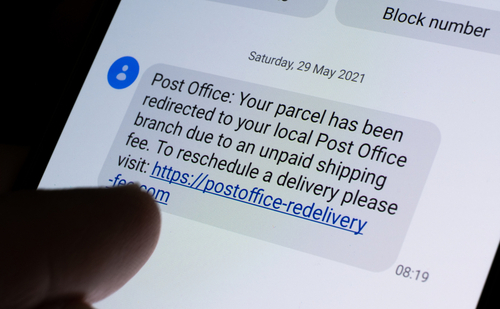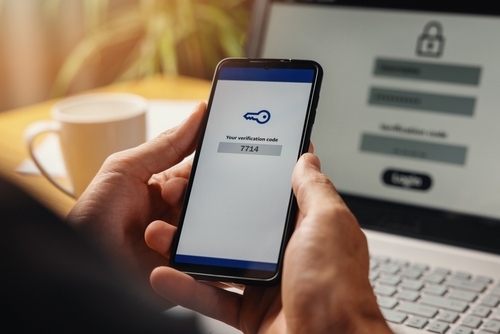Have you ever received a last-minute holiday deal or email that seems too good to be true? You might be right to wonder if it’s a scam. The holiday season brings joy, family gatherings, and festive cheer, but also the stress of travel, shopping, and gift-giving. Unfortunately, fraudsters take advantage of busy times like Christmas, Black Friday, Thanksgiving, and New Year’s.
They prey on busy schedules, distracted minds, and increased online activity. The good news is that you can protect yourself and your loved ones with awareness and simple precautions. That’s why we’ve created this guide at Remitly to break down the most common holiday scams in the US.
We’ll cover the red flags to watch out for, share practical safety tips, and outline steps to take if you’re targeted.
What are the most common holiday scams in the US?

Scammers come up with new fraudulent tricks every holiday season, and the most common in the US include:
Online shopping fraud
Holiday shopping can be exciting, but it can also make you a prime target for online scams. Fraudsters often design fake websites and promote their fake business through social media ads.
These sites may sell counterfeit products, like designer handbags or electronics, or advertise deals that simply don’t exist. Once you make a payment, your order may never arrive.
Delivery scams
During the holidays, scammers often send fake missed delivery or tracking notifications by text or email. These messages look real and may include links to malicious websites designed to steal personal information.
If you follow through, you could unknowingly share private details or download malware that infects your device. Double-check the sender’s email or phone number. If it looks suspicious or unfamiliar, it’s likely a scam.
Temporary holiday job scams
During the holidays, many people look for short-term or part-time work to earn extra income. Unfortunately, scammers take advantage of this rush by posting fake job ads designed to steal money or personal information.
Fraudsters may impersonate well-known companies or staffing agencies and promise quick hiring with high pay, flexible hours, or work-from-home roles. Once you apply, they might ask for “training fees” or even request you to buy equipment upfront—none of which legitimate employers do.
Vacation rental and travel scams
Planning a holiday getaway? Be careful, as scammers often take advantage of travelers at this time of year. Some fraudsters send fake emails or texts advertising free trips, limited-time flight deals, or steep hotel discounts. Others post fake vacation rental listings with stolen photos and low prices to lure travelers into sending payments upfront. Once the money is sent, the property—and the host—vanish.
If you’re driving to visit family or taking a road trip, watch for fake toll collection texts. These scams impersonate state toll agencies and claim you owe a small fee, directing you to pay through a fraudulent link.
Charity scams
The holiday season brings out people’s generosity—and unfortunately, scammers know it. Fake charities often show up around Thanksgiving and Christmas, asking for donations that never reach those in need.
Fraudulent crowdfunding campaigns are also common. Genuine nonprofits are transparent about their mission, finances, and how donations are used, so always take a moment to review these details before giving.
Social Media Customer Service scams
During the busy holiday season, many people turn to social media for quick help with orders, deliveries, or travel plans—and scammers take advantage of that. They create fake customer service accounts that look nearly identical to real brand pages and respond to public posts or direct messages offering to “help.”
These impostors often ask for sensitive details like your order number, payment info, or login credentials. Some even send links to phishing sites designed to steal your data or install malware—or claim they need you to send money to “test” a refund process for things like a delayed flight or canceled booking.
Red flags that signal a scam

Scammers often leave small clues that something isn’t right. Knowing what to watch out for can save you a lot of money and stress.
Requests for payments via cryptocurrency or prepaid cards
If someone asks you to only pay with cryptocurrency or gift cards, and they don’t accept traditional forms of payment, it’s almost always a scam.
Urgent language pressuring you to act immediately or keep secrets
Phrases like “act now or lose your deal” or “don’t tell anyone” are classic pressure tactics. Scammers want you to panic and act fast. Instead, don’t respond right away. Take a moment to think it through and avoid making quick decisions.
Poorly designed websites with misspellings or odd web addresses
Fake websites often look similar to real ones, but they usually have small mistakes. These may include misspelled words, awkward grammar, or a web address that doesn’t quite match the official one. If something looks off, don’t click any link or share information.
Unsolicited contact from unfamiliar numbers or email addresses
Unexpected calls, texts, or emails which end up asking for money or personal information are major red flags. When in doubt, hang up or don’t answer.
Unbelievable deals that require upfront payment
Scammers love offering exclusive or limited-time deals that demand upfront payment. Don’t give in, and check the seller’s track record and business history before sending your money.
Job postings that require payment or skip interviews
Legitimate employers won’t rush the hiring process or ask for money upfront. Be wary of job offers that promise high pay for little work, use personal email addresses, or require payment for things like training, equipment, or background checks. Real employers never ask you to pay to get a job.
Delivery notifications with fake tracking links
Texts or emails saying you missed a delivery or owe a small fee are often scams. These messages may include fake tracking links or ask for personal information to “reschedule” a package. If the link doesn’t match the courier’s official website that’s a red flag. Always check your delivery status directly on the company’s website.
How to protect yourself this holiday season

Before we talk about what to do if you’ve been scammed, here’s how to avoid holiday scams in the first place:
Shop smart online
Stick to trusted websites and always check for “https” in the URL. When shopping online, type the retailer’s web address directly into your browser instead of clicking links from ads or emails. If you’re unsure about a website or seller, check BBB’s Scam Tracker to see if others have reported suspicious activity before making a purchase.
Verify before you give
Before donating, make sure the charity is real. Use trusted tools like BBB Wise Giving Alliance or the IRS Tax Exempt Organization Search to confirm a charity’s authenticity. Be cautious of Christmas scams that come with emotional stories or urgent requests. Real charities won’t pressure you to donate right away.
Secure your accounts
Turn on two-factor authentication for your email, bank, and shopping accounts. Use strong, unique passwords for each one, and consider setting up account alerts so you’re notified immediately if something suspicious happens.
Be careful with travel bookings
Always book through reputable platforms. Take time to research the property and read reviews from past guests before paying. Confirm the listing by contacting the property owner or management through the platform’s messaging system.
Stay alert to communication tricks
If you get an email or text from an unfamiliar sender claiming to represent a company or offering a deal, don’t respond right away. Instead, contact the business directly using its official website or phone number.
Do your research before you buy
Before purchasing, take a few minutes to search the seller’s name along with words like “review,” “complaint,” or “scam.” If something feels off, pause and ask a trusted friend for a second opinion before completing the purchase.
What to do if you’ve been scammed
Even the most careful shoppers can become victims of seasonal scams. What matters most is responding quickly so you can limit the damage.
Take immediate action
Contact your bank or credit card issuer right away to report the fraud and dispute any charges. Many banking apps now let you temporarily turn your card off or freeze it. If you’ve shared login details, change your passwords immediately and turn on two-factor authentication for all affected accounts.
Report the scam
File a report with the Federal Trade Commission (FTC) and if it’s a scam that happened on a social platform, online marketplace, or retailer’s website, report it there too. The platforms may be able to remove fraudulent listings and alert other users.
Protect your identity
If your personal information like your Social Security number was compromised, take necessary steps to protect your identity. Place a fraud alert or freeze your credit to stop scammers from opening new accounts in your name.
Learn and share
Turn the experience into a learning opportunity. Understanding how the scam happened helps you recognize warning signs next time. Share what you’ve learned with friends and family so they can stay alert and avoid falling for similar scams this holiday season.
Stay safe and enjoy the holidays
Holiday scams can feel overwhelming, but the good news is that most are preventable. Protect yourself by staying aware, verifying websites, monitoring your accounts, and double-checking any requests for money.
Trust your instincts, take your time with online deals, and remember that legitimate companies and charities will never pressure you into making urgent payments.
Sharing what you’ve learned is just as important as applying it. Talk to friends, family, and especially seniors or anyone less familiar with online threats, so they don’t get caught off guard.
Keep this guide handy this holiday season and beyond, and revisit it whenever you’re unsure about a deal, message, or donation request. With awareness and a few smart habits, you can enjoy a safe and scam-free holiday.
FAQs
How do I report a holiday scam?
Report scams to the FTC. It’s also smart to alert your bank or credit card issuer and the platform where the scam occurred.
How can I tell if a holiday deal is legitimate?
Look for “https” in the website’s URL, read reviews from multiple sources, and research the seller’s reputation. If a deal sounds too good to be true, it probably is. Take your time and avoid rushing into purchases.
Can scammers target me on social media?
Absolutely. Fake ads, phishing links, and fraudulent messages often circulate on social media during the holiday season. Avoid clicking suspicious links, and always double-check profiles or pages before engaging, especially if they promote deals that seem unusually good.
Are seniors more at risk for holiday scams?
Yes. Older adults are often targeted because scammers assume they may be less familiar with digital threats. Encourage your older loved ones to verify emails, phone calls, and money requests before responding. Helping them set up strong passwords, two-factor authentication, and privacy settings can go a long way toward keeping them safe.
If a scam does happen to an older adult, AARP Fraud Watch Network Helpline provides scam victims with action steps, emotional support from trained peers, guidance for concerned families, and referrals to law enforcement and fraud investigators.

